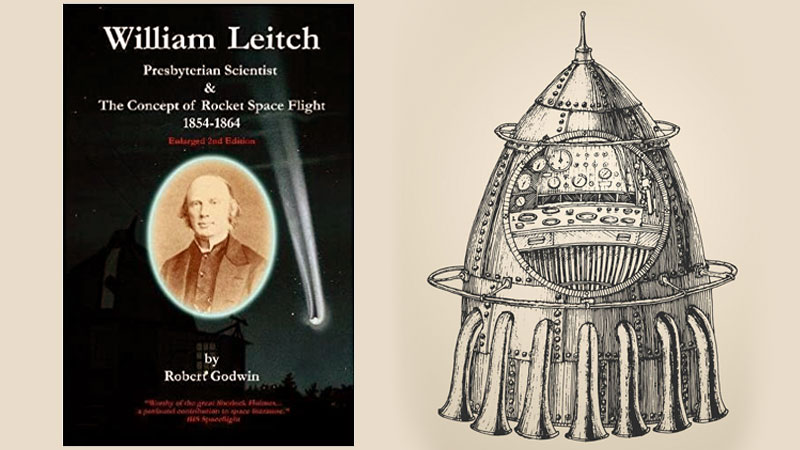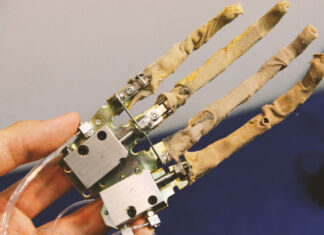
Traditional history tells us that the concept of the Rocket was only conceived by the Russian Konstantin Tsiolkovsky, at the end of the 19th century, and by the American Robert Goddard, at the beginning of the 20th century, both inspired by the work of Jules Verne.
As we have recently noticed, much of our history is wrong or incomplete, sometimes due to negligence and sometimes due to convenience, but a recent work published by space historian Robert Godwin has come to correct one of these historical flaws.
Godwin claims that professor and scientist William Leitch had already correctly applied scientific principles to spaceflight three decades earlier than previously thought, in 1861, in a study entitled “A Journey Through Space”, which was published in a newspaper in Edinburgh, Scotland, and later became part of the book published the following year by the Scottish scientist.

“While Goddard and Tsiolkovsky were inspired by the science fiction of H.G. Wells and Jules Verne, Leitch seems to have been inspired by advances in powerful telescopes, military projectiles that were beginning to be manufactured in London, and Isaac Newton,” says Godwin.
Godwin notes that Leitch not only understood Newton’s Law of Action and Reaction, but also that a rocket would work more efficiently in the vacuum of space, a fact that, even nearly six decades later, caused Goddard and other scientists to be ridiculed by skeptics of their day.
“I have no doubt that Leitch deserves a place of honor in the history of spaceflight. The fact that he is a scientist is the key to this story. He wasn’t making a guess,” Godwin says.
It is worth remembering that Jules Verne, admittedly the source of inspiration for the works of Tsiolkovsky and Goddard, only published his book “From the Earth to the Moon” in 1865, four years after “Leitch’s Rocket”, and Verne was not only a fantastic and imaginative writer, considered the inventor of the science fiction genre, but also a science enthusiast and assiduous researcher, Very well informed about the innovations and new theories of his time, he was known to have a large circle of scientist friends and, quite possibly, had contact with Leitch’s studies and was inspired by him.
Leitch’s research was forgotten after the scientist died, at a very young age, and the publisher that published his book and owned the copyright went bankrupt in 1878, but with the recent rescue of Godwin, the name of William Leitch, the true precursor of space travel, once again occupies its rightful place in history.


















